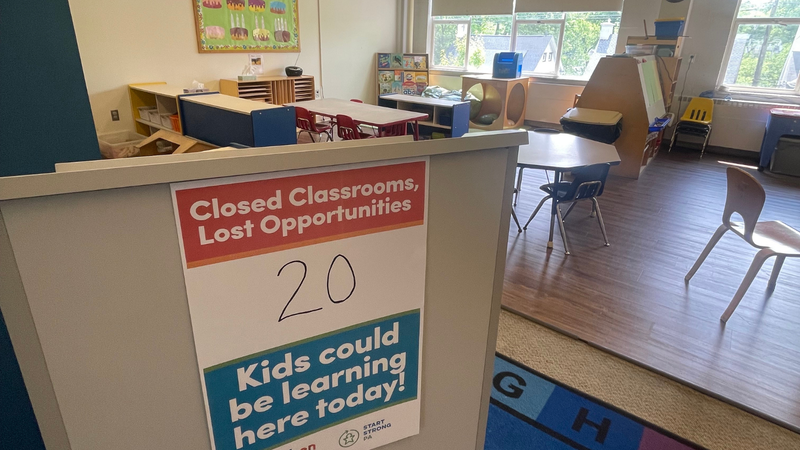
PHILADELPHIA (KYW Newsradio) — Normally, the classroom at Wonderspring Early Education in Narberth would be buzzing with young learners, but since the pandemic began, it’s been empty.
“During COVID, we closed down four classrooms,” said CEO Zakiyyah Boone. “We’ve only been able to reopen one so far, so all those children are still on the waitlist. Those waitlists are just getting longer” — about 32,000 children — “as more providers suffer and as more teachers leave the field.”
Child care providers across the commonwealth are seeing similar effects. Mai Miksic, policy director for the nonprofit Children First, said the greatest barriers are staffing shortages and low wages for early childhood educators.
“In Pennsylvania, the average child care worker makes only $10.69 [an hour], and preschool teachers make only a little bit more than $13 an hour,” she said. “Our statewide campaign, Start Strong PA, is asking Gov. [Tom] Wolf and the General Assembly for a wage supplement of $2 an hour so that we can begin to address this crisis.”
An additional $2 an hour would total about $115 million.
Children First is bringing the issue to light by highlighting 30 classrooms over 30 days that have been closed due to the lack of funding. While the federal aid provided by the American Rescue Plan was a nice temporary fix, Miksic said the supplement they’re asking for would support sustainable wages for workers.
“Over the next 30 days, we will feature one empty classroom per day from early childhood programs across the southeast and some from across the state as well,” she explained of the initiative. “These classrooms are empty because there is not adequate staffing.
“[If] parents can’t get to work, our economy suffers. But most importantly, young children are losing opportunities to learn during their most critical years of development.”

